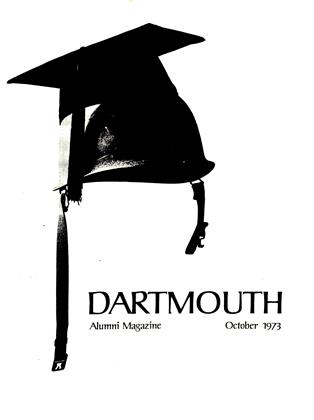What should be done about violence on the streets and college campuses, the use and abuse of drugs, due process of law, over-population, and pollution?
What should be done about the prevalent inability to distinguish between sound and spurious publicity and to choose unattractive hard facts rather than charming double-talk in controversies desperately in need of straightforward procedures and solutions?
What, in brief, should be done about establishing for the American people the sort of education capable of exerting control of public affairs?
A former journalist, John D. May '54, who has taught at the University of California (Berkeley), Yale University, the University of Wisconsin, and the University of Chicago, has produced a book with answers to the three questions. AmericanProblems: Debates from "The Advocates", slanted towards college and high-school classrooms and seminars, consists of twelve debates from the television series compiled with introductions, commentaries, and exercises by Mr. May. The focus is not just on identifying problems but in canvassing and appraising solutions. Students are encouraged not to memorize or paraphrase but to establish principles, ferret out fallacies, watch for conspicuous omissions, and challenge arbitrary assumptions and extraneous evidence.
The book is divided into five main sections: Elections and Legislation, Inter-Governmental Relations, Judicial Procedures and Individual Rights. Social Policy, and Ecology and Resource-Development. Debates are organized with the main question, an overview, opening statements, affirmative and negative witnesses, and cross-examinations. The participants, no fewer than 92, are prominent in education, government, law, business, communications, ecology, nuclear power, and medicine. Published by the National Press of Palo Alto, the book runs to 330 pages and costs $5.95.
To honor John G. Gazley, Dartmouth Professor of History Emeritus, Louis Morton, Daniel Webster Professor and chairman of the Department of History, invited some 50 men and women prominent in the academic and literary world to a cocktail party in the Faculty Lounge, Hopkins Center, September 7. After 40 years of intensive research Mr. Gazley has completed his studies and writing about Arthur Young (1741-1820), and his book The Life of Arthur Young has just been published by the American Philosophical Society of Philadelphia (727 pages, 23 illustrations, and three maps, $10). The son of the rector of Canterbury, Young became well known as an agricultural theorist; performed 3,000 unsuccessful experiments on a rented farm; wrote a large number of books about farming; edited the periodical Annals of Agriculture (1784-1809), which ran to 47 volumes; served as secretary to the Board of Agriculture; came to know well a variety of interesting celebrities, including Dr. Charles Burney, the musicologist; and took his daughter, Fanny Burney, the novelist, diarist, and darling of Samuel Johnson, to hear Warren Hastings' trial in Westminster Hall (she found him charming). Young is chiefly remembered today for his Travels in France During 1787-88-89-90, in which he commented shrewdly on many of the social and economic ills and extravagances that led to the French Revolution and the overthrow of the ancien regime. Translated into various languages, it is still highly valued in France, and it contains an often quoted sentence: "The magic of property turns sand into gold." Mr. Gazley's book will be reviewed in a forthcoming issue of the Dartmouth AlumniMagazine by the Dartmouth Professor of History F. David Roberts.
William C. Gifford Jr. '63, a lawyer in the firm of Ivins, Phillips & Barker of Washington, D.C., is author of "Controlled Foreign Corporations, Section 958" in Tax Management Portfolio No. 259 in the series of monographs on the United States taxation of foreign income published by the Tax Management Division of the Bureau of National Affairs. This publication appeared in late 1972. The Bureau of National Affairs plans to publish Mr. Gifford's law school casebook, International Tax Planning, during the next academic year.
Following the public memorial service September 16 for the late Francis Lane Childs '06, Winkley Professor of the Anglo-Saxon and English Language and Literature Emeritus, in the Congregational Church. Henniker, N.H., persons were invited to visit the Tucker Free Library and to view the Childs Historical Room, named for him, and the Archives Room to which he donated much historical material. A native of Henniker, born December 18, 1884, he was an authority on its history and also on that of Hanover, as shown by his editorship of Hanover, New Hampshire, abicentennial book: Essays in Celebration of theTown's 200th anniversary, published 1961.
 View Full Issue
View Full Issue
More From This Issue
-
 Feature
FeatureCITIZEN SOLDIERS
October 1973 By LAURENCE I. RADWAY -
 Feature
FeatureONE HUNDRED MASTER DRAWINGS
October 1973 By ROBERT B. GRAHAM '40 -
 Feature
FeaturePeregrine Summer
October 1973 By James T. Harris '72 -
 Feature
FeatureArcheological "Amateur"
October 1973 -
 Feature
FeaturePort Professional
October 1973 By M.B.R. -
 Article
ArticleBig Green Teams
October 1973 By JACK DEGANGE














